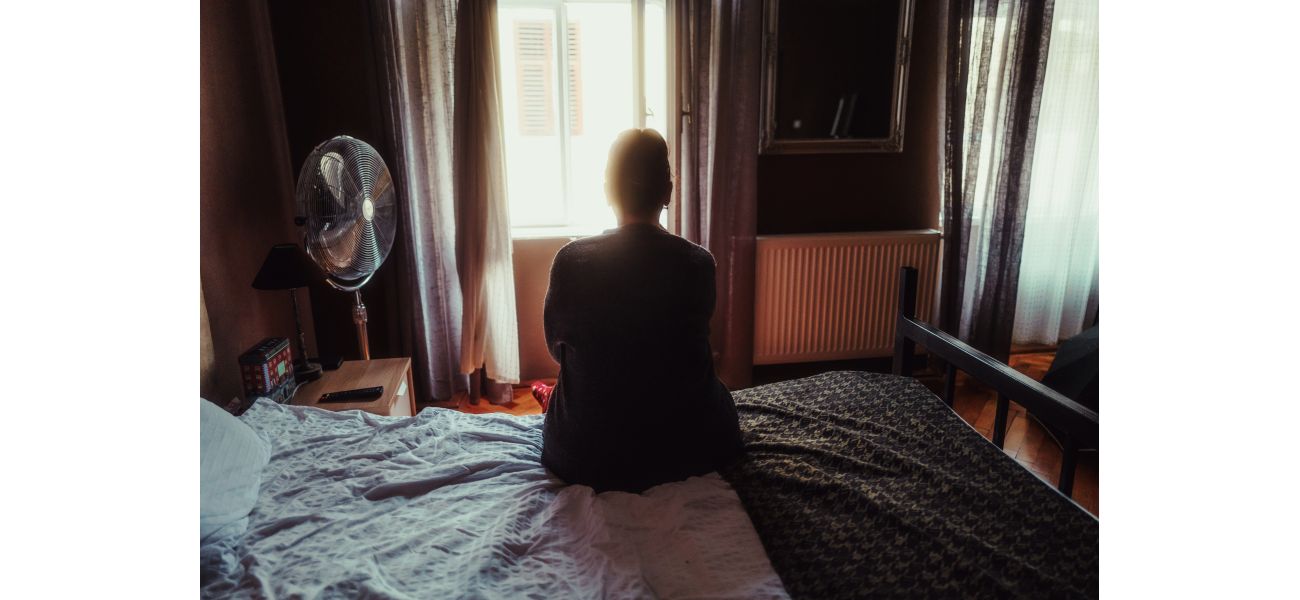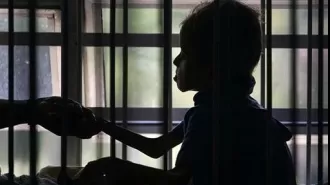A work-related assault caused Tracey to lose her job, income, and eventually her home.
Tracey lost her job, livelihood, and rental home in three years.
October 17th 2024.

Tracey had experienced a series of unfortunate events that changed her life drastically. In a span of just three years, she lost her job, her source of income, and her rental home. As if that wasn't enough, at the age of 66, she was forced to leave her friends' place with nothing but the clothes on her back. She shared with 9news.com.au, "I knew no one but my friends and I had absolutely nothing." It was a terrifying situation for Tracey, who had no financial stability and was left with only the clothes she was wearing and her handbag.
Unfortunately, Tracey's story is not unique. She is just one of the many women who are on the frontlines of Australia's housing crisis. It is a growing trend for women over 55 to experience homelessness in the country. This can be attributed to various factors such as lower retirement savings or superannuation compared to men, and being vulnerable to sudden life changes like losing a job or going through a divorce.
For Tracey, her life took a turn for the worse when she was physically attacked at work. The incident left her with post-traumatic stress disorder, making it impossible for her to return to work. She had a good-paying job, financial stability, and everything she wanted in life, but in just 25 minutes, everything changed. She shared, "I had what I wanted and life was good and all of a sudden in, you know, 25 minutes my life changed completely."
The attack not only affected her mental and emotional well-being, but it also had a domino effect on her financial stability. She became eligible for a disability pension, but it was discontinued when she received a compensation payout from the attack. To make matters worse, she lost most of that payout to a scam. Eventually, she thought she had found a safe place to rebuild her life when she stayed with new friends in a new town. But unfortunately, that turned out to be unsafe as well, and she found herself with nowhere left to go, seeking help from the police.
Tracey never could have imagined that she would end up in such a situation. She shared, "I never would have dreamt in a million years that this would have happened to me. I had never been in a situation like this before, not knowing what to do or anything." However, in a moment that she credits with saving her life, the police connected her with homelessness support services from Mission Australia.
The organization provided her with crisis accommodation and even helped her with transportation to medical appointments. They also assisted her in navigating the complicated process of reinstating her pension with Centrelink, with the hope of eventually living independently again. Tracey is grateful for the support she has received and shared, "What would I have done? I'd be sleeping under a bridge or somewhere. I really owe my life to Mission Australia."
As the housing affordability crisis in Australia continues, Mission Australia has reported an 83 per cent increase in women over 55 seeking assistance with housing and everyday essentials. CEO Sharon Callister has urged for more investment in social and affordable housing to ensure that older women can age with dignity in their own homes and communities. She shared, "Older women may not be able to afford the next rent increase or interest rate hike. A health scare or other change in circumstance can be disastrous for them."
The 2021 census revealed that 19,378 people aged 55 years and over were experiencing homelessness. It also found that older women were more likely than men to be in supported accommodation or temporarily staying with other households or living in crowded dwellings. On the other hand, older men were more likely to be sleeping rough, in tents, or in boarding houses. It is a concerning trend, and as Callister highlighted, it is challenging to find secure, long-term housing for those in need due to the ongoing housing emergency.
Tracey's name may have been changed, but her story is one that is all too familiar for many women in Australia. It is a call to action for more support and resources to be allocated to address the housing crisis in the country, especially for the vulnerable and marginalized groups, such as older women. As Callister puts it, "Our frontline staff across the country work hard to support everyone who comes through their doors, but the ongoing housing emergency makes it challenging."
Unfortunately, Tracey's story is not unique. She is just one of the many women who are on the frontlines of Australia's housing crisis. It is a growing trend for women over 55 to experience homelessness in the country. This can be attributed to various factors such as lower retirement savings or superannuation compared to men, and being vulnerable to sudden life changes like losing a job or going through a divorce.
For Tracey, her life took a turn for the worse when she was physically attacked at work. The incident left her with post-traumatic stress disorder, making it impossible for her to return to work. She had a good-paying job, financial stability, and everything she wanted in life, but in just 25 minutes, everything changed. She shared, "I had what I wanted and life was good and all of a sudden in, you know, 25 minutes my life changed completely."
The attack not only affected her mental and emotional well-being, but it also had a domino effect on her financial stability. She became eligible for a disability pension, but it was discontinued when she received a compensation payout from the attack. To make matters worse, she lost most of that payout to a scam. Eventually, she thought she had found a safe place to rebuild her life when she stayed with new friends in a new town. But unfortunately, that turned out to be unsafe as well, and she found herself with nowhere left to go, seeking help from the police.
Tracey never could have imagined that she would end up in such a situation. She shared, "I never would have dreamt in a million years that this would have happened to me. I had never been in a situation like this before, not knowing what to do or anything." However, in a moment that she credits with saving her life, the police connected her with homelessness support services from Mission Australia.
The organization provided her with crisis accommodation and even helped her with transportation to medical appointments. They also assisted her in navigating the complicated process of reinstating her pension with Centrelink, with the hope of eventually living independently again. Tracey is grateful for the support she has received and shared, "What would I have done? I'd be sleeping under a bridge or somewhere. I really owe my life to Mission Australia."
As the housing affordability crisis in Australia continues, Mission Australia has reported an 83 per cent increase in women over 55 seeking assistance with housing and everyday essentials. CEO Sharon Callister has urged for more investment in social and affordable housing to ensure that older women can age with dignity in their own homes and communities. She shared, "Older women may not be able to afford the next rent increase or interest rate hike. A health scare or other change in circumstance can be disastrous for them."
The 2021 census revealed that 19,378 people aged 55 years and over were experiencing homelessness. It also found that older women were more likely than men to be in supported accommodation or temporarily staying with other households or living in crowded dwellings. On the other hand, older men were more likely to be sleeping rough, in tents, or in boarding houses. It is a concerning trend, and as Callister highlighted, it is challenging to find secure, long-term housing for those in need due to the ongoing housing emergency.
Tracey's name may have been changed, but her story is one that is all too familiar for many women in Australia. It is a call to action for more support and resources to be allocated to address the housing crisis in the country, especially for the vulnerable and marginalized groups, such as older women. As Callister puts it, "Our frontline staff across the country work hard to support everyone who comes through their doors, but the ongoing housing emergency makes it challenging."
[This article has been trending online recently and has been generated with AI. Your feed is customized.]
[Generative AI is experimental.]
0
0
Submit Comment





